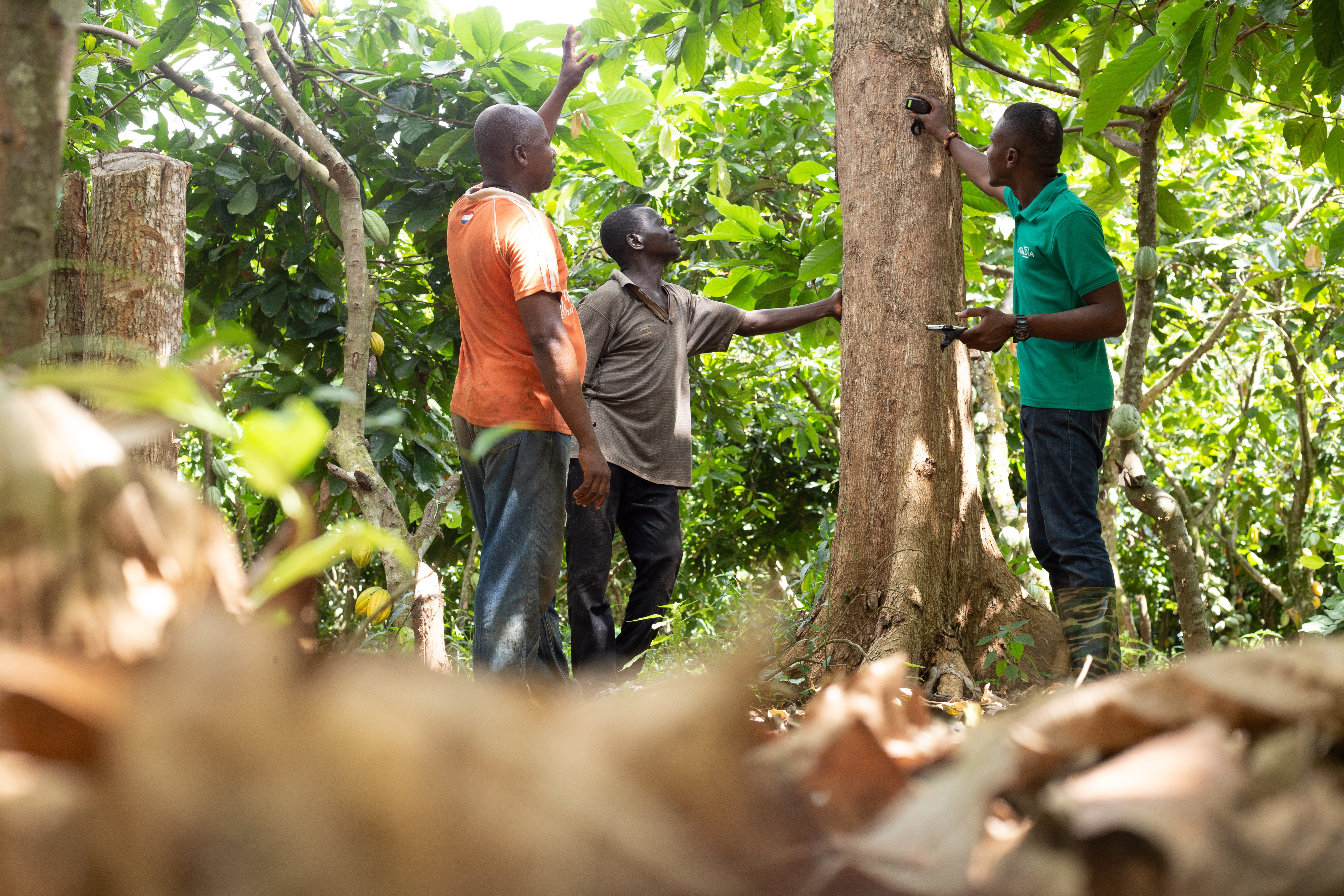Investing in innovation to benefit smallholders
Much has been written about the potential of big data and tech innovation to revolutionise agriculture and create more efficient food systems. But extending the benefits of technology to remote smallholder farmers and gathering accurate information about them that can shape effective policymaking is a challenge.
At the CFC, we're keen to support technological innovations that improve the ability of smallholders to enhance their livelihoods. We've recently taken our commitment one step further by investing EUR 300,000 in Netherlands-based firm Meridia, which is driving transparency in food chains and ensuring the equitable treatment of smallholder farmers.
Chief Executive Officer Thomas Vaassen describes Meridia as ‘a geospatial data company that puts farmers at the centre of its work to make supply chains transparent, sustainable, and inclusive of smallholders.’
From the CFC's perspective, Meridia offers benefits all along the supply chain. The firm specialises in collecting, analysing, and verifying high-quality data in smallholder supply chains. This helps food companies achieve environmental, social and governance (ESG) standards and compliance, while building supply chains that are inclusive of smallholders.
Tracing commodities back to the farms where they were grown has historically been difficult. But, explains Thomas, ‘our software provides accurate farm mapping and field data collection – farms can be mapped even in the most remote locations.’
Collecting this data has numerous advantages for smallholders. ‘They become visible and can access regulated supply chains, sustainability programmes, and investments to maintain a stable income and stop deforestation.’ In addition, farmers gain better insights into their productivity and a deeper understanding of their business. For example, exact farm size and production data enable accurate yield per farm calculations.
At the same time, clear parcel boundaries lower the risk of conflict in communities. This verified data also enables smallholders to secure land rights for themselves and future generations. Having land documents embeds prosperity by giving them greater control over land use and the income it generates.
‘As increasingly larger volumes of farmer data are collected, farmers need better access, use and ownership of their data to improve their livelihoods,’ says Thomas. ‘Data needs to be governed in a farmer-centric way. As part of several large consortiums, we have taken up important data stewardship activities to secure land rights and tackle issues related to agroforestry for cocoa farmers and cooperatives in West Africa and Indonesia.’
If this data is unavailable, smallholders risk being excluded from the supply chain. It is also a business imperative for food companies that rely on smallholders, as regulations evolve and consumers become more conscious of a brand's sustainability credentials.
Field data quality is the key to ensure compliance with the upcoming EU Regulation on Deforestation-Free Products (EUDR). However, the rigorous farm data required is hard for companies to achieve. It is particularly challenging to get this data within the tropical commodities sector, where around 75% of crops are grown by smallholder farmers.
Meridia helps companies overcome these challenges and prepare for compliance. Through assessing supply chain data and verifying its quality, compliant and none-compliant data are separated. Data verification can also unlock other benefits, such as accurate farmer payments and carbon calculations. Thomas describes the regulation as a ‘game changer’ because it turns nice-to-have internal policies into organisation-wide requirements necessary to meet mandatory regulations. ‘Companies that do not comply with the new regulation risk penalties, supply chain disruptions, and reputational harm, directly affecting their customers,’ he says.
Meridia has a track record of providing this much-needed transparency for multi-national companies such as the chocolate and cocoa business Barry Callebaut. The firm's Global Lead of Thriving Nature, Tilmann Silber, says: ‘To measure and further strengthen the impact of our agroforestry programme, we rely on high-quality data at the farm level. Our partnership with Meridia helps us to take the next step in data collection and management and will further boost our sustainability activities.’
Working with Meridia will enhance our ability to ensure the agribusinesses we invest in are truly delivering positive change on the ground, says CFC Risk and Portfolio Manager Hector Besong: ‘Technology has huge potential to enhance the lives of smallholder farmers and is becoming critical to large food brands that must prove their supply chains are living up to their ESG claims. Meridia's ability to gather and analyse robust and reliable data has a key role to play in creating global food systems in which smallholders can thrive, and net zero can be achieved.’
CFC Managing Director Amb. Sheikh Mohammed Belal added: ‘Anything that helps to bring the developing and the developed world closer together is a win-win enterprise for us. By applying innovative technology in countries such as Ghana, Côte d’Ivoire and Indonesia, Meridia is providing us with deep insights into the commodity value chain that we couldn’t access before. It is an example of how technology can be used to enhance the value chain for both the producer and the consumer.’
As the potential for tech innovation to reshape agriculture grows, we're excited to have partnered with a leading business in the sector that will support our mission to build more equitable food systems.

